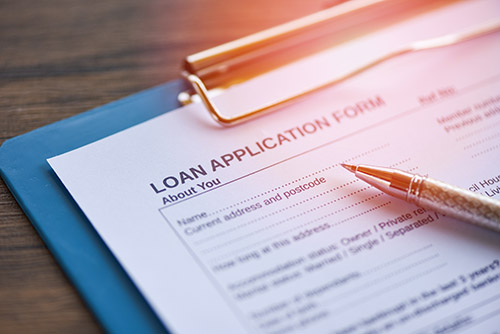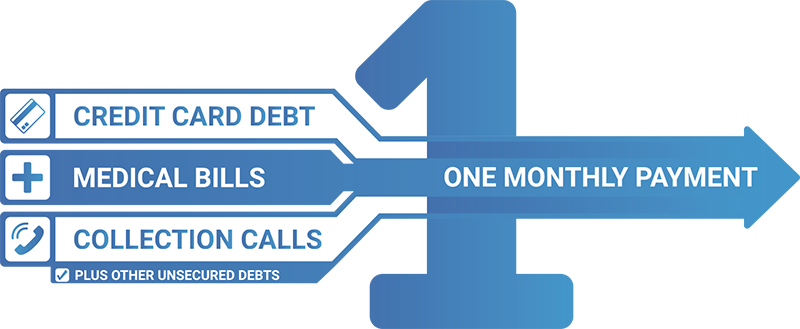Consolidate your debt into one simple monthly payment with our Illinois debt relief programs. We help residents across Illinois manage their debts more efficiently and regain financial stability through our customized debt relief programs in Illinois.
-
Reduce your monthly payments up to 50%
-
Reduce interest rates up to 75%
-
Learn about your debt relief options
-
Pay your debt off sooner
-
Stop late and over-limit fees
-
Stop the collections calls

Get a Free Illinois Debt Relief Consultation
There is ZERO cost or obligation to you, and may improve your credit score over the duration of the program.
By clicking “Submit” I consent to receive calls and email message offers/information from Debt Reduction Services, Inc. using an autodialer/pre-recorded message at the number I provided. I understand that msg/data rates may apply and that my consent to such communications is not a requirement for purchase. If you would like to stop receiving text messages from DRS, simply reply to a received text with the word STOP.
 We’re a nonprofit debt relief company, licensed in all 50 states.
We’re a nonprofit debt relief company, licensed in all 50 states.
We can help you end the stress of debt and escape the debt cycle for good.
Need Help with Illinois Debt Relief?
Reduce your monthly payments by up to 50% and pay off your debt faster.
We have already negotiated reduced interest rates with all major creditors and most regional and local lenders in order to assist you in repaying your debt sooner than you would be able to on your own.
Often, we’re able to leverage our existing relationships to stop your late and over-limit fees, and even lower your required monthly payments.
How Does Our Illinois Debt Relief Program Work?
Step 1.
Talk to one of our certified debt consolidation counselors.
Step 2.
Our preset terms with creditors can get you lower interest rates and payments.
Step 3.
Make just one simple monthly payment to us and we’ll distribute it to your creditors for you.
Reviews and Success Stories
Illinois Debt Relief Program
Our Illinois debt relief program is designed to help residents regain control over their finances and put an end to high-interest debt. Our comprehensive offer tailored solutions that can significantly reduce your monthly payments and lower your overall debt burden. The average Illinois household now owes more than $6,200 in credit card debt, slightly above average compared to the rest of the nation.
One of the biggest contributors to the steady increase in debt among Illinois households is the rising cost of living. Inflation has risen to 8.3% over the last few years, and the purchasing power of Illinois residents has decreased. In bigger cities like Chicago, residents are faced with an even higher cost of living, even though The Windy City saw an unprecedented population decline post-2020.
This makes it difficult for families to cover their basic expenses, let alone save for emergencies or make extra payments on their debt.
Contending with inflation and a slow economic recovery from the pandemic, some Illinois residents may feel overwhelmed by the debt they’ve accumulated. If you are in need of debt relief, there are plenty of options that can help you. Whether it’s meeting with a credit counselor or starting a more in-depth Illinois debt relief program, you don’t have to face your debt alone.
Debt Relief Options in Illinois
Consider Starting with Credit Counseling
Credit counseling is an opportunity to sit down with a certified third-party individual and comb through your finances. Your counselor may offer certain ways to revise your budget to avoid increasing your debt. They can also recommend debt relief programs that make the most sense for your finances. Having a complete picture of your finances is key to beginning your journey to debt-free living.
Paying Debt Off on Your Own

If you have multiple types of debt, this may not be the best option for you. You may want to consider getting credit counseling before deciding to go this route. A credit counseling agency can go through the following numbers with you and help decide which is the best option for you.
To start, you will need to take an in-depth look at your finances. Add up your total monthly expenses, including things such as rent, gas, groceries, and bills. This will help you see how much extra money you can comfortably put towards your credit card payments each month. Then, add up all of your minimum monthly payments and compare the number to how much you have left over from your total monthly expenses.
Your goal should be that the number left over from monthly expenses is larger than your minimum credit card payments combined, which will leave you with additional money to place towards your debts. If you find that the left-over number is smaller than your minimum credit card payments, you will need to cut back on the budget in certain areas, such as shopping for more affordable groceries or carpooling when possible.
There tend to be two methods of putting the excess money towards your credit card payments.
1. Pay Off of the Smallest Debt First
-
-
- If you have more than three cards and aren’t too worried about high interest rates, this may be the best option for you. Pay all of your minimum monthly credit card payments and add any excess money to the card with the smallest balance. Once you have the smallest balance paid all the way to zero, roll over the entirety that you were paying on that card to the next smallest card. You’ll shrink your debts one by one and will be able to make bigger payments to the higher balance cards as you knock each one down to zero.
-
2. Pay off the Debt with the Highest Interest Rate First
-
-
- If you have less than three cards and high interest rates that seem to undo all the progress you make each month, this may be the best option for you. Just like the previous option, you will pay all of your minimum monthly payments but add your excess funds to the card with the highest interest rate first. This saves you money in the long run as you’re giving far less in interest over time.
-
Debt Settlement
Typically, debt settlement is offered by for-profit companies. The strategies used can cause significant harm to your credit score, such as telling you to stop all payments until a settlement is reached. There is no guarantee that your debt will be entirely settled, and you could be left with a poor payment history on top of debt. Additionally, you pay a monthly fee on top of the portion the company takes out of the savings they get you.
Although this debt relief method is advertised as effective and inexpensive, this tends not to be the case. Research shows that companies who practice debt settlement on a client’s behalf are only successful 10% of the time.
If this method is successful, you pay thousands of dollars for the service, you reach some sort of settlement while your credit score gets dinged month after month, and after all the fees you still save money. If the service fails, you pay your monthly fee with no return, your credit score suffers, and you are still left in debt.
Some creditors have chosen to sue over the money that was unpaid during debt settlement negotiations.
Debt Consolidation Loans

Even if you qualify, there is no guarantee that the loan will cover the entire amount of your debt. Depending on the qualifications and requirements of the lender, you could be subject to high interest rates and a longer repayment term.
Credit counseling is most often not included in this option, so unless you seek it out prior to applying for the loan, you may not have the tools necessary to keep up with payments. In the end, this solution can take far longer to pay off your debt and may not lead you to debt-free living.
Bankruptcy
Although bankruptcy is often described as a clean slate, this method of debt relief has long-lasting negative impacts, particularly on your credit score. Bankruptcy remains on your credit report for 7-10 years, affecting your everyday life. If this is coupled with poor spending habits, there is a high chance that you could find yourself filing for bankruptcy again in the future.
Bankruptcy should be treated as an absolute last resort, only considered after you’ve exhausted your other debt relief options in Illinois..
Debt Management Plans (DMP)

Once these are set, the total is withdrawn from your bank account as one monthly payment. The credit counseling company will then disburse those funds to your creditors on your behalf.
The requirements to enroll in a DMP are far less strict than those of a debt consolidation loan, and even those with poor credit can get started with a DMP because your credit score is not a factor for qualifying for a debt management plan.
When you’ve got more debt than you can keep up with, and you’re having a hard time making your monthly payments, a debt management plan can offer relief.
Illinois Debt Relief FAQs
How does a debt relief program affect my credit?
It depends on what type of debt relief program you choose. While debt settlement often negatively impacts your credit depending on the strategies used, a debt consolidation loan may not, as long as you consistently repay the loan.
Bankruptcy is a heavy hit on your credit for 7–10 years. Alternatively, a debt management program will help your credit score over time as your debt shrinks. With the tools you receive from our financial education program, you should be able to continue to grow your credit score.
Is a debt management plan bad for my credit score?
Participating in a debt management plan (DMP) to consolidate your debt does not directly affect your credit score.
Your current creditors may make a temporary note on your credit report. This simply informs other creditors of your attempt to repay your debt and discourages them from issuing you any new accounts, lines of credit, or loans that may detract from your efforts.
Once you have completed the DMP, this notation is required to be removed. In certain circumstances, when a client enrolls in the DMP, and either they or their creditors close credit accounts, the client may see a short-term drop in credit score partly due to a change in the ratio of current balance to available credit limit. However, this dip is quickly recovered with on-time payments, which lower the debt owed.
What type of debt can be included in debt consolidation?
Debt consolidation programs are primarily designed to manage unsecured debts, providing a streamlined solution for those struggling with multiple payments. Unsecured debts are obligations not backed by collateral, such as credit card balances, medical bills, and personal loans. By consolidating these debts, you can often secure a lower interest rate, simplifying your repayment process and potentially saving money in the long run.
Secured debts, on the other hand, are typically not included in a debt consolidation program. These debts are tied to collateral, such as a home or car, and include mortgages and auto loans. Since these loans are backed by assets that can be repossessed if you default, they require different debt management strategies.
Using a consolidation debt program for your unsecured debts can help you create a more manageable financial plan, reducing the stress of juggling multiple payments across various creditors. It’s a useful tool for regaining control over your finances, but it’s important to consult financial advisors to ensure it’s the best option for your situation.
What does your credit score need to be for a debt consolidation loan?
The credit score required for a debt consolidation loan can vary depending on the lender. Generally, most lenders prefer a credit score of at least 600 to 650 for standard debt consolidation programs. If your score falls below this range, it may be challenging to find suitable options.
This is another instance where Debt Reduction Services stands out. Unlike many other providers, we have no minimum credit score requirement for our debt consolidation program. We’ll help you consolidate your debts and work toward a more manageable financial future, regardless of your credit history.
With Debt Reduction Services, you can access the debt relief program that best suits your needs. Our consolidation debt program is designed to simplify your repayment process without the stress of high credit score demands. Additionally, our certified credit counselors can provide personalized guidance to help you navigate your financial situation, offering support and solutions tailored to your needs.
Is debt consolidation bad for my credit score?
Debt consolidation can have short- and long-term effects on your credit score. Initially, a debt consolidation program may cause a small dip in your credit score and closing out credit card accounts after consolidation. Closing accounts can impact your credit history length and credit utilization ratios, both of which can potentially lower your score.
However, these negative impacts are typically short-lived. A debt consolidation program can benefit your credit score in the long run. By consolidating debts into a single monthly payment, you simplify your financial obligations and reduce the risk of missed or late payments. Consistently making on-time payments through your debt consolidation program can help improve your credit score over time.
Does debt consolidation work on a limited income?
Yes, debt consolidation can work effectively even if you have limited income. The primary goal of a debt consolidation program is to make your debt payments more manageable by combining multiple debts into a single monthly payment. This approach can be especially beneficial for individuals with limited income, as it simplifies financial management and potentially lowers the monthly payment amount.
Debt Reduction Services offer flexible debt consolidation programs tailored to fit various financial situations, including limited incomes. Working with our experienced credit counselors allows you to develop a personalized repayment plan that considers your income constraints.
Furthermore, consolidating your debts can help you avoid missed payments, which can lead to additional fees and a negative impact on your credit score. With a well-structured consolidation debt program, you can gain better control over your finances, reduce stress, and work toward becoming debt-free, even on a limited income.
Is consolidating debt a bad idea?
Consolidating debt is generally good for those struggling with multiple high-interest debts. A debt consolidation program can combine all your debts into a single monthly payment and simplify your financial management. Additionally, you may be able to secure a lower interest rate, which can help you pay off your debts faster.
However, it’s essential to be aware of potential drawbacks to make an informed decision. If not managed properly, debt consolidation can sometimes lead to a longer repayment period. Additionally, not all debts are covered under debt consolidation programs.
Fortunately, Debt Reduction Services has certified credit counselors who will work with you to create a plan, address your specific needs, and help you regain control over your financial situation while mitigating potential drawbacks.
Call us at (866) 688-3328 today for a free consultation.
Can you consolidate debt if it’s already in collections?
Yes, you can consolidate debt even if it’s already in collections. When your debt goes to collections, it means you’ve missed several payments, and the original creditor has transferred your debt to a collection agency. While this can negatively impact your credit score, a debt consolidation program can be a viable solution to regain control over your finances.
A consolidation debt program allows you to combine multiple debts, including those in collection, into a single monthly payment. This approach can simplify your repayment process and potentially secure a lower interest rate, making it easier to manage your overall debt.









